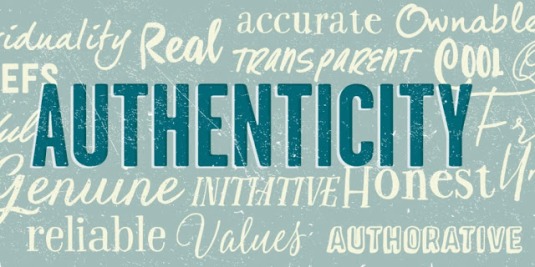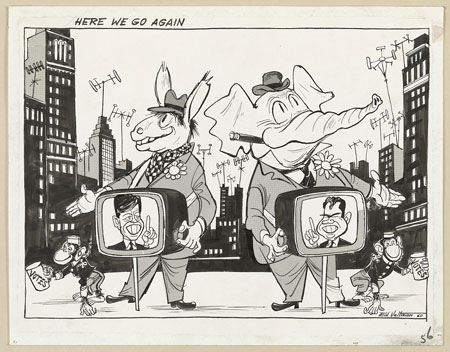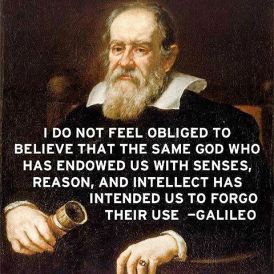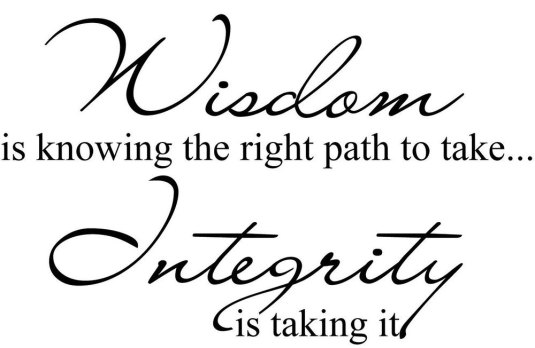
Authenticity is being true to yourself. It is being who you really are versus who others want you to be. It is being true to a set of values, morals or principles that define a good life. It is defining oneself and not letting others define you. “In existentialism, authenticity is the degree to which a person’s actions are congruent with their values and desires, despite external pressures to social conformity.” — Wikipedia
What do you want your life to be like? What will you stand up for? What is worth living for and dying for? These questions frame a Search for Authenticity which will continue our entire lives. It is not that we never find authenticity, it is that as our roles change in life, the meaning of authenticity will change. We must continually redefine ourselves in terms of being authentic.
It will not matter whether you are rich or poor, whether you are educated or uneducated. It will not matter who you know or what you know. Authenticity comes from the heart and soul and not from the brain. You cannot buy authenticity. You cannot acquire authenticity by fame or fortune. Knowing celebrities and being a celebrity are no guarantees of authenticity. You cannot go to school and get a degree in authenticity. Think for a minute. Who is the most authentic person you know? What makes them authentic?

Two things have escaped me in my life. When I was young, I wanted to be rich and famous. Often, I still dream of it. Not an unusual desire given American values. Over the years, I have read many books about famous people. I have read most of the great philosophers. I studied a Harvard Business course on the histories of the richest entrepreneurs like Getty, Rockefeller, Carnegie, and Mellon. These were the predecessors of Gate, Musk, and Buffett. The results would show that I am nowhere near successful in my twin goals. Neither fortune nor fame has cast its shadow over my life. Perhaps I am blessed because of this. Knowing how immature and ungrateful that I have often been, either the money or fame would have been squandered or it would have destroyed me.
Today, I am happier than I have ever been. I have more than some people and less than others. I have good friends and a loving wife and sister. My ex-relationship with my daughter is not wonderful but it is no longer on rocky grounds. What does my life have to do with authenticity? Why my story here? Well, over the years I have pondered the reasons that my goals of fame and fortune were never attained. My answer lies in what it means to be authentic.
I have never chosen money over knowledge. Money has never been as important to me as learning and education. I would sooner spend an afternoon in a library as in an office. I have never chosen money over ethics. My clients always knew that I would tell them the truth, even if it was not always tactfully done. I never dreamed of getting ahead in business by developing a network of influential friends or meeting clients on the golf course. In fact, I purposely never learned to play golf. I wanted to be respected for what I knew and not who I knew. This is a major mistake in the world of commerce. When my boss at the consulting firm asked me where my list of contacts was for networking, I was befuddled. I had to go back into his office and ask him to explain networking to me.
Being a rich successful businessperson was not in my genes. I came to accept that fact over time. The answer for how you get to Carnegie Hall is “Practice, practice, practice.” I was never willing to take the time to be a businessperson. I would rather do other things like travel and meet new people, see new places and explore new ideas. I would not practice the skills needed to succeed in business. I valued time more than money.
I also was not willing to take the risks needed to be an entrepreneur. I remember reading a biography of the great African American entrepreneur John Johnson who founded Ebony Magazine. When he needed money to meet a deadline for publishing an issue of Ebony, he pawned his mom’s furniture. He had already invested his last cent in the business. It would be interesting to know what his mom said when she came home and found her furniture gone. I was never a risk taker when it came to money. I still have never bought a lottery ticket. I cannot imagine hocking my furniture much less my mom’s furniture.

Being authentic means being true to who you are in spirit. Integrity and authenticity go hand in hand. Integrity is upholding those unique values and virtues that make you authentic. Oxford Online dictionary defines integrity as: “the quality of being honest and having strong moral principles; moral uprightness.” If you say that you value honesty, then you must practice honesty. If you say that you value truth, then you must practice truthfulness. If you say that you value democracy, then you must support democratic values and principles. First though, you must ask yourself what it is that makes you alive? What makes you human? What is truly meaningful to you? The answers to these questions will determine your integrity. People with little or no integrity can be authentic. There are authentically “bad” people. However, I believe that authenticity must always be allied with good character development and that means authenticity must meld with integrity. Unfortunately, it seems that sometimes the two do not find each other.
Today we are faced with a tsunami of public figures who seem to have no integrity. Lawyers lie and spin devious schemes to protect their clients and themselves. Politicians take oaths and contributions from PACs which ensure that they will ignore the will of the majority. Sports figures use their influence to take advantage of others. Celebrities have no qualms about ethics and will do anything to continue their celebrity status. So called journalists are more interested in advertising revenue than in the veracity or merits of any news.
Being authentic only has merit if you also have integrity. Father Stokhal of Demontreville used to say that if you do bad actions, you can tell yourself all day long that you are a good person, but you will never be good until you stop the bad actions. If you have grievous character defects such as lying and cheating others, being true to yourself has no merits or value to the world. Jesus said that if the salt loses its flavor, what good is it. Socrates believed that the ultimate goal of human existence was not just to live but to live a good, meaningful, and virtuous life. A good life was guided by virtue and moral principles. Being authentic means to find the virtues and morals that will help you to lead a good life. Integrity is sticking to those virtues and morals that you believe in through thick and thin. You do what is right regardless of what others may think or how much you may or may not profit by your actions. Here is an example of the lack of authenticity and integrity that plagues politics today. This concerns the upcoming Republican debate.

Yesterday, I was reading the following story on several different news outlets. One headline on the N.Y. Times read “Defend Trump and ‘Hammer’ Ramaswamy: DeSantis Allies Reveal Debate Strategy.” The principal points that the coaches suggested to DeSantis were as follows:
- Take a sledgehammer to Vivek Ramaswamy, the political newcomer who is rising in the polls.
- Defend Donald Trump when Chris Christie inevitably attacks the former president.
- Attack Joe Biden and the media no less than three to five times.
If the guidance above does not smell to you as garbage, then I apologize. But please don’t tell us that “Well, this is politics.” I hope we all expect more of our politicians than people who ignore authenticity and integrity to score cheap points in a debate. Nevertheless, this is what politics in America has become. Now there always was and always will be devious and unethical methods used to get elected. Study the history of Thomas Jefferson and you can see the media at work two hundred and fifty years ago to smear his name because of his alleged affair with a slave named Sally Hemings. But if we don’t start expecting more, when will things change?
We may be at a crossroads in America. A large percentage of people no longer respect politicians and lawyers (they seem to go together). Many people are clamoring for less government. Governmental agencies have lost a great deal of their former influences due to the actions of our leaders.
A study on respect for government found the following:
A Pew Research Center survey finds that just 20% of Americans say they trust the federal government just about always or most of the time. — Dec 5, 2021
Two studies on feelings towards lawyers in the USA found:
In a Gallup poll from 2015, only 4% of respondents rated the “honesty and ethical standards” of lawyers as “very high.” In that same poll, more than one-third (34%) rated attorneys’ honesty and ethical standards as low (25%) or very low (9%).
A landmark study for the American Bar Association found even harsher truths underlying the popular perception of attorneys:
74% of those surveyed agreed that “lawyers are more interested in winning than in seeing that justice is served.”
69% believed “lawyers are more interested in making money than in serving their clients.”
These studies were done eight years ago. I would bet you a 100 to 1 that feelings towards lawyers today are even worse than they were eight years ago. Former Vice President Pence recently referred to “Trump’s gaggle of crack pot lawyers.” Trump and eighteen other cohorts have now been indicted in respect to his scheme to overthrow the 2020 presidential election. Seven of those indicted were lawyers. If you ever believed that lawyers follow a “Code of Ethics” you may well wonder where Trump’s lawyers went to school.

You might wonder if authenticity and integrity are just for the average person. It certainly seems that “above” average people including the rich and famous do not subscribe to the same playbook that is recommended for the rest of us. Why then worry about a “Search for Authenticity?” Will it keep you happy? Will it make a difference in your life? Here is what some other people and religions have to say about it.
“Authenticity is a collection of choices that we have to make every day. It’s about the choice to show up and be real. The choice to be honest. The choice to let our true selves be seen.” ― Brene Brown, The Gifts of Imperfection
“If you don’t know who you truly are, you’ll never know what you really want.” ― Roy T. Bennett
“Only the truth of who you are, if realized, will set you free.” ― Eckhart Tolle
“But above all, my brothers, do not swear, either by heaven or by earth or by any other oath, but let your “yes” be yes and your “no” be no, so that you may not fall under condemnation.” — James 5:12 ESV
“The objective of Islamic ethics is to illuminate the virtues that enable a person to perfect his or her humanity.” — Omar Qureshi, Finding the Authentic Self
“In Buddhism, living authentically means living with honesty and being willing to look at your own illusions and self-deceptions. It also means questioning your self-images and self-limiting identities, and examining the stories you weave about yourself.” — Tricycle, The Buddhist Review
Conclusions:
- Do not believe what I am telling you. Search for your own authenticity.
- Find out what it means to “Be Yourself.” What is yourself?
- Find a mentor, partner or someone who will be honest with you. Do an authenticity check with them every so often. Ask them if you are an authentic person.
- Who do you most admire? Are they authentic? Do they have integrity? If not, why do you admire them?
- Are you voting for and supporting people who are authentic and have integrity? Why not?
- What barriers exist in your life to being authentic?
Next week we will look at Man/Woman’s Search for Love.
I doubt that a person ever existed who did not want or search for love. Love is older than the Greek gods, older than the Bible, older than the universe. Everyone knows what love is and no one knows what love is. Everyone wants love but few really know how to give love. Love may be the most frequently used word in any language. It is probably the most frequently misused word in any language as well. We search for love and many of us will never find it. Some of us will find it at a very old age and some will find it while very young. No amount of arguing will ever stop anyone from looking for love.
- Arabic: حب (habb)
- Chinese: 爱 (ài)
- Filipino: Pag-ibig
- Swahili: upendo
- Hindi — मोहब्बत (mohabbat)
- Indonesian: cinta
- Japanese: 愛 (ai)
- Persian: عشق (ishq)
- Punjabi: ਪਿਆਰ (pyaar)
- Russian: любовь (lyubov’)
- Spanish: Amor
PS:
At the first Republican debate Wednesday night, Seven of the eight Republican presidential candidates on the debate stage raised their hands to confirm that they would support former President Trump as the 2024 GOP nominee, even if Trump is convicted in a court of law. Former Arkansas Gov. Asa Hutchinson was the only candidate to keep his hand down. Some readers have commented that one or the other of these candidates have set themselves apart from Trump and are no longer sycophants. I think these raised hands are enough evidence to prove that there is little or no integrity in the Republican Leadership today.
 1963 Johnston High School State Baseball Champions
1963 Johnston High School State Baseball Champions

 Tom Sandoval addressed the jaw-dropping drama that he and longtime girlfriend Ariana Madix called it quits over infidelity.
Tom Sandoval addressed the jaw-dropping drama that he and longtime girlfriend Ariana Madix called it quits over infidelity.


 Integrity is everything to lose and nothing to gain, except your self-respect. Integrity is standing up for what you believe is right even when everyone is against you. Integrity is the ability to put compassion and kindness ahead of self-interest. Integrity cannot co-exist with greed. It cannot co-exist with lust. It cannot co-exist with a thirst for power. It cannot co-exist with a drive for money, fame, or fortune. All of these elements are like Kryptonite to Integrity. Kryptonite was the one thing that could rob Superman of his powers. Lust, greed, money, fame, and power all have the ability to rob one of his/her integrity.
Integrity is everything to lose and nothing to gain, except your self-respect. Integrity is standing up for what you believe is right even when everyone is against you. Integrity is the ability to put compassion and kindness ahead of self-interest. Integrity cannot co-exist with greed. It cannot co-exist with lust. It cannot co-exist with a thirst for power. It cannot co-exist with a drive for money, fame, or fortune. All of these elements are like Kryptonite to Integrity. Kryptonite was the one thing that could rob Superman of his powers. Lust, greed, money, fame, and power all have the ability to rob one of his/her integrity.
 Politics is a sham in America today. We have men and women who are elected for life and spend more time campaigning then they do in serving their constituents. Public servants who start collecting money to run their next campaigns within days of winning their present office. We have a system of government where money is the most important factor in who gets elected and who gets reelected. Our politicians are more worried about losing votes than they are in the constitution or in protecting our democracy. What Integrity is there in supporting a riot to overthrow a fair election that every court and every state in America found was fairly conducted? The media seized on the outrageousness of the Big Lie to sell news. The losing party seized on the credibility of millions of gullible supporters to buy the Big Lie and try to maintain their power.
Politics is a sham in America today. We have men and women who are elected for life and spend more time campaigning then they do in serving their constituents. Public servants who start collecting money to run their next campaigns within days of winning their present office. We have a system of government where money is the most important factor in who gets elected and who gets reelected. Our politicians are more worried about losing votes than they are in the constitution or in protecting our democracy. What Integrity is there in supporting a riot to overthrow a fair election that every court and every state in America found was fairly conducted? The media seized on the outrageousness of the Big Lie to sell news. The losing party seized on the credibility of millions of gullible supporters to buy the Big Lie and try to maintain their power. The media in America has become another hallowed institution gutted by greed and a desire for more and more money. Reporters, writers, and journalists in America today are more interested in selling advertising than they are in balanced objective reporting. You can divide the news up by whether they lean Right or Left, Liberal or Conservative, Democrat or Republican. Each side has a mirror image on the other side of the political spectrum. CNN is opposed by Fox News. The New York Times is opposed by The New York Post and the Washington Post is opposed by the Washington Times. One side supports the Right and the other side supports the left. This is not balanced reporting, and no truth comes out of the dynamic between the two sides. What both sides have in common are reporters who will report the most useless, tasteless, uninformative stories if they perceive that these stories will sell advertising or if they can figure out a clickbait title that will attract readers and thereby expose them to paid commercials.
The media in America has become another hallowed institution gutted by greed and a desire for more and more money. Reporters, writers, and journalists in America today are more interested in selling advertising than they are in balanced objective reporting. You can divide the news up by whether they lean Right or Left, Liberal or Conservative, Democrat or Republican. Each side has a mirror image on the other side of the political spectrum. CNN is opposed by Fox News. The New York Times is opposed by The New York Post and the Washington Post is opposed by the Washington Times. One side supports the Right and the other side supports the left. This is not balanced reporting, and no truth comes out of the dynamic between the two sides. What both sides have in common are reporters who will report the most useless, tasteless, uninformative stories if they perceive that these stories will sell advertising or if they can figure out a clickbait title that will attract readers and thereby expose them to paid commercials. f you want more of a description of each scale you can follow the hyperlink above. The USA ties for 10th place with Great Britain on this index. I can see some correlation with Integrity, but I can see many differences. I think honesty is one component of Integrity, but Integrity is more complex than being simply honest. An honest person can still lack integrity if they are unwilling to stand up for what they believe. Cowardice and Integrity are incompatible.
f you want more of a description of each scale you can follow the hyperlink above. The USA ties for 10th place with Great Britain on this index. I can see some correlation with Integrity, but I can see many differences. I think honesty is one component of Integrity, but Integrity is more complex than being simply honest. An honest person can still lack integrity if they are unwilling to stand up for what they believe. Cowardice and Integrity are incompatible.

 I thought I would start the year of 2021 off with a positive slant. Namely, some things we can all do or practice to be better people. However, before anyone should pay any attention to what I am about to say, there are several questions they must ask themselves. I would advise you that the veracity and hence credibility of an author is critical to your acceptance of what the author is trying to sell you or convince you of. Do not buy an argument from someone who cannot be trusted. Think about the comment that “If you see the Buddha on the road, kill him.” An uncritical acceptance of any idea is dangerous to your own integrity and responsibility. Hence, the questions I would want answered (If I were you) would be as follows: Who is this writer to say what the “greatest” virtues for a human are? How did he come up with these Seven Virtues? What is the difference between a virtue and a value? Is this an important difference or is he about to sell me another new religion?
I thought I would start the year of 2021 off with a positive slant. Namely, some things we can all do or practice to be better people. However, before anyone should pay any attention to what I am about to say, there are several questions they must ask themselves. I would advise you that the veracity and hence credibility of an author is critical to your acceptance of what the author is trying to sell you or convince you of. Do not buy an argument from someone who cannot be trusted. Think about the comment that “If you see the Buddha on the road, kill him.” An uncritical acceptance of any idea is dangerous to your own integrity and responsibility. Hence, the questions I would want answered (If I were you) would be as follows: Who is this writer to say what the “greatest” virtues for a human are? How did he come up with these Seven Virtues? What is the difference between a virtue and a value? Is this an important difference or is he about to sell me another new religion? I would like to answer that I am a seeker of truth and knowledge. I am very opinionated, often highly judgmental and have frequently been accused of being a “know it all.” Many people would write my opinions off as being too liberal while others would say that I am too rational. I place great value on being logical and trying to stay open to many possibilities. I have been studying philosophy and religion since I was eighteen. I have no degrees in either. But the number of books and articles and stories that I have read number in the hundreds. I have attended many different worship houses and types of religious services. I was brought up as a Catholic until I rejected its teachings at about the age of 10. When no one would give me a good answer for “Who made God?” I more or less decided that most religions were based on superstitions.
I would like to answer that I am a seeker of truth and knowledge. I am very opinionated, often highly judgmental and have frequently been accused of being a “know it all.” Many people would write my opinions off as being too liberal while others would say that I am too rational. I place great value on being logical and trying to stay open to many possibilities. I have been studying philosophy and religion since I was eighteen. I have no degrees in either. But the number of books and articles and stories that I have read number in the hundreds. I have attended many different worship houses and types of religious services. I was brought up as a Catholic until I rejected its teachings at about the age of 10. When no one would give me a good answer for “Who made God?” I more or less decided that most religions were based on superstitions. Given that one could easily comprise a list of ten or perhaps one hundred important virtues, why do I believe that my seven are the seven greatest and most important? How do I have the audacity to make such an assertion? I might have been sitting under an apple tree one day, or perhaps simply thinking about life at one of my yearly silent retreats at the Demontreville Retreat Center, when I compiled a list of seven virtues. While I truly “value” these ideas, I understand them more as virtues than values. I will address this difference later. I decided that I want to live by these virtues. Each day for the last fifteen or more years, I have selected one of these seven virtues to help guide me through the day. Whether it is patience, kindness or courage, each day I start by reflecting on this virtue and trying to make it a part of my life.
Given that one could easily comprise a list of ten or perhaps one hundred important virtues, why do I believe that my seven are the seven greatest and most important? How do I have the audacity to make such an assertion? I might have been sitting under an apple tree one day, or perhaps simply thinking about life at one of my yearly silent retreats at the Demontreville Retreat Center, when I compiled a list of seven virtues. While I truly “value” these ideas, I understand them more as virtues than values. I will address this difference later. I decided that I want to live by these virtues. Each day for the last fifteen or more years, I have selected one of these seven virtues to help guide me through the day. Whether it is patience, kindness or courage, each day I start by reflecting on this virtue and trying to make it a part of my life. The danger in this discussion lies in your taking a sectarian or religious approach to my writings. I assure you that I am not a religious person. I may be a spiritual person but I do not think of myself in either of these categories. I am an agnostic who wants to live a better life and help build a world that is a better place to live for future generations. Living by these seven virtues is one way I believe I can contribute to this goal.
The danger in this discussion lies in your taking a sectarian or religious approach to my writings. I assure you that I am not a religious person. I may be a spiritual person but I do not think of myself in either of these categories. I am an agnostic who wants to live a better life and help build a world that is a better place to live for future generations. Living by these seven virtues is one way I believe I can contribute to this goal. If I have satisfactorily answered the questions that I posed above respecting my integrity and credibility, I will now set off to address each of my Seven Virtues and explain why they are so important and the difference that I think they can make in our lives. Look for my virtues over the next several weeks in my blogs.
If I have satisfactorily answered the questions that I posed above respecting my integrity and credibility, I will now set off to address each of my Seven Virtues and explain why they are so important and the difference that I think they can make in our lives. Look for my virtues over the next several weeks in my blogs.
 There are many who would consider Martin Luther the father of the Protestant Reformation. Growing up Catholic, we regarded Protestants as heretics. We all knew that the one true religion was Catholic, and Protestants did not know what they really wanted. What does the name Protestant even mean? Taking it at face value, it would seem to mean to protest against. The dictionary defines a Protestant as someone who has broken from the Roman Catholic church. If you are a Protestant you practice a form of Christianity in protest to the Catholic form. There are over 200 major Protestant denominations in the USA and over 35,000 independent or non-denominational Christian churches which are ostensibly Protestant. During the past few decade, we have seen numerous splits in Protestant churches over such issues as gay marriages, gay clergy, women ministers. Even though I am a non-Catholic myself, I can’t help but be amazed at the dissension and disunity among Protestants. I wonder what Martin Luther would have thought if he were alive today.
There are many who would consider Martin Luther the father of the Protestant Reformation. Growing up Catholic, we regarded Protestants as heretics. We all knew that the one true religion was Catholic, and Protestants did not know what they really wanted. What does the name Protestant even mean? Taking it at face value, it would seem to mean to protest against. The dictionary defines a Protestant as someone who has broken from the Roman Catholic church. If you are a Protestant you practice a form of Christianity in protest to the Catholic form. There are over 200 major Protestant denominations in the USA and over 35,000 independent or non-denominational Christian churches which are ostensibly Protestant. During the past few decade, we have seen numerous splits in Protestant churches over such issues as gay marriages, gay clergy, women ministers. Even though I am a non-Catholic myself, I can’t help but be amazed at the dissension and disunity among Protestants. I wonder what Martin Luther would have thought if he were alive today.








 The idea of sex in our minds easily overrode any caution or concern about getting caught by her father. We arrived at her house. She lived out of town somewhat in Scituate which was a more rural area of R.I. in the sixties. When we arrived, Bob said “I will go in first and check things out. If it is okay, you guys can come in. Bob went inside the small average looking New England Colonial house with two upper dormer windows and came out a few minutes later. “OK guys” Bob said, “She is willing.” We all trotted inside the house to the first room which was a kitchen with a small table and four chairs. Dave, Tommy and I sat on the chairs and Bob headed up a small staircase. “I will go first” said Bob “and Dave is next. You and Tommy can decide who goes after Dave.” “Oh”, said Bob, “her name is Barbara and she likes to be called Barb.” No one challenged this order of affairs as it was taken for granted that since Bob had set this up, he had first dibs.
The idea of sex in our minds easily overrode any caution or concern about getting caught by her father. We arrived at her house. She lived out of town somewhat in Scituate which was a more rural area of R.I. in the sixties. When we arrived, Bob said “I will go in first and check things out. If it is okay, you guys can come in. Bob went inside the small average looking New England Colonial house with two upper dormer windows and came out a few minutes later. “OK guys” Bob said, “She is willing.” We all trotted inside the house to the first room which was a kitchen with a small table and four chairs. Dave, Tommy and I sat on the chairs and Bob headed up a small staircase. “I will go first” said Bob “and Dave is next. You and Tommy can decide who goes after Dave.” “Oh”, said Bob, “her name is Barbara and she likes to be called Barb.” No one challenged this order of affairs as it was taken for granted that since Bob had set this up, he had first dibs.



 Marching forward in time to the period of the Revolutionary war when George the III was ruler of the American Colonies, what did they think of King George? Here is what is written in the Declaration of Independence:
Marching forward in time to the period of the Revolutionary war when George the III was ruler of the American Colonies, what did they think of King George? Here is what is written in the Declaration of Independence:


